Your favorite Louisville places have changed over time. 6 notable redeveloped buildings
If you take a drive through Louisville, the city's history is often hidden in plain sight.
All over the county, there are buildings in use today that once served completely different purposes — take the redeveloped Whiskey Row storefronts along Main Street, for instance, a series of hotels and businesses inside spaces that were once offices and warehouses for the region's bustling bourbon industry.
"Almost all of our 'new' distilleries are in repurposed buildings, such as Michter's in Fort Nelson Building and Angel Envy in the former American Refrigeration Company building," Steve Wiser, president of the Louisville Historical League, added. "Only Rabbit Hole distillery is new construction."
There are stores that have been renovated into health care facilities and hotels, like the former K-Mart at Breckenridge Lane and Taylorsville Road that now serves as a Norton Healthcare outpatient facility, or the Embassy Suites Hotel at Fourth Street and Muhammad Ali Boulevard that used to be a Stewart Dry Goods department store. Many others aging structures have been converted into living spaces, like the Marcus Lindsey Church at Shelby and E. Main streets, Wiser said.
"NuLu district is pretty much all repurposed buildings," Wiser added.
You may like:Historic Baptist church's new co-pastor, a gay man, says calling is 'the honor of my life'
Hundreds of venues that have been redeveloped for different purposes currently stand around Louisville, Wiser said, including a number of locations that should be recognizable to people who have spent time in the city. Here are a few examples you've probably seen around town.
Noche Mexican BBQ, 1838 Bardstown Road
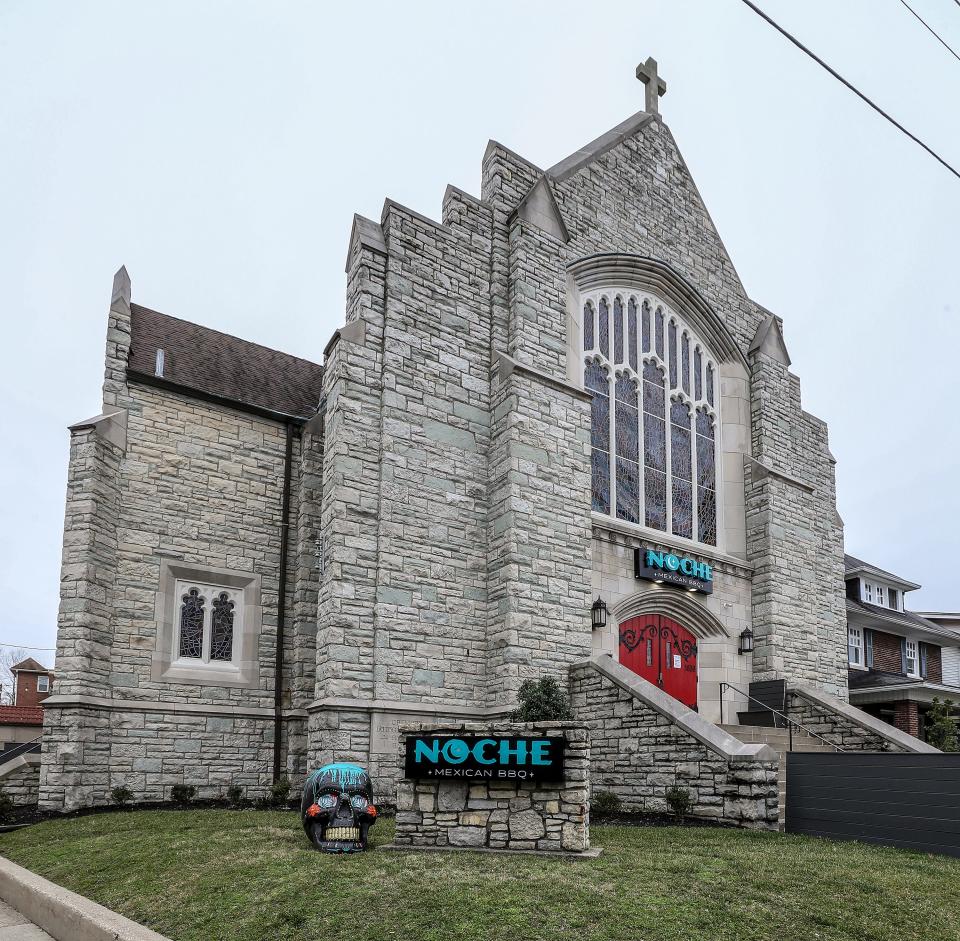
A former church in Douglass Loop was renovated in recent years into a popular and unique barbecue restaurant.
Noche Mexican BBQ served customers for the first time in 2019, nearly a century after the venue opened as the Calvary Lutheran Church in 1920. It closed in 2015 and stood vacant for several years before the Sanctuary on Bardstown luxury apartments opened on the property's backside in 2018, a year ahead of the restaurant opening.
Unlike many repurposed buildings, this location saved its original façade. The interior kept all the details of the original cathedral, including its stained-glass windows, a pipe organ located on the second floor and an open kitchen in front of what used to be the pulpit.
Noche Mexican BBQ serves traditional favorites like tacos, salsa and margaritas along with barbecue dishes. It has several nods to its international heritage, including food specials and other events during Día de los Muertos, or "Day of the Dead," a Mexican holiday where people who have died are celebrated.
The restaurant is open between 11 a.m. and 10 p.m. Sunday through Thursday and between 11 a.m. and 11 p.m. on Friday and Saturday.
State history:Is Abe Lincoln's 'birthplace cabin' in Kentucky national park the real thing?
The Silver Dollar, 1761 Frankfort Ave.
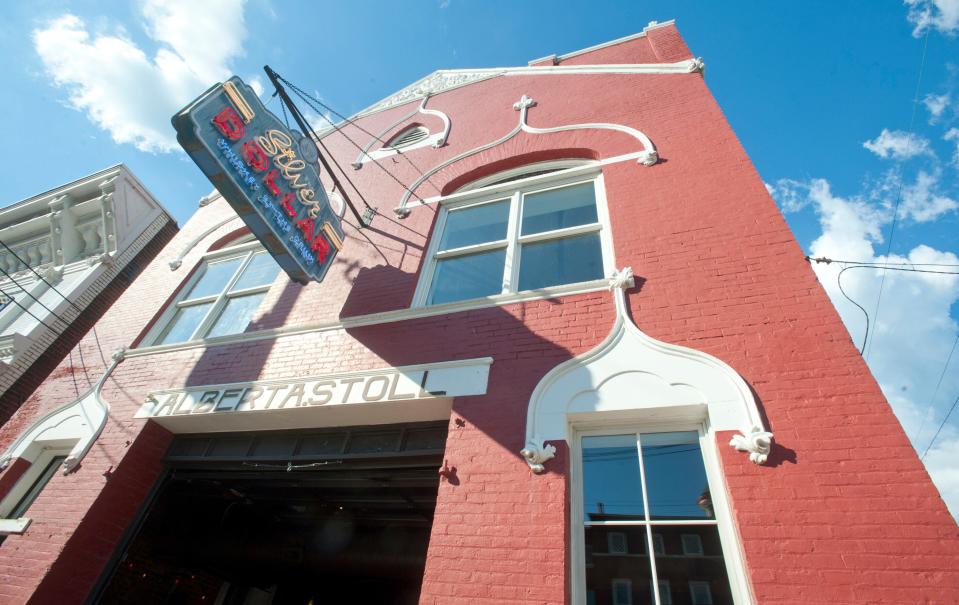
More than a decade ago, The Silver Dollar opened its doors for the first time in Clifton inside the former Albert A. Stoll firehouse. But before it served items like brisket sandwiches, chili con frijoles, and hot cheese dip, the space was Frankfort Avenue's fire station.
The firehouse was named after Albert A. Stoll, a well-known local politician in the late 1800s and president of the Louisville school board for several terms. Before his death in 1901, Stoll would go to the engine house every day and clean a hose cart he bought for the station, according to The Courier Journal's archives.
Nowadays, it's a restaurant that serves southern-style food with a California twist – along with a coveted Kentucky bourbon selection and great country and Bluegrass tunes on the speakers.
Related:The history behind Louisville's 'Whiskey By The Drink' signs — and why you can't buy them
"The Silver Dollar tries in its own way to honor this wonderful music (honky-tonk), these great juke joints and the spirited people who inhabited them," its website says.
The Silver Dollar opens at 5 p.m. Thursday through Monday, with last call at the bar at 11:30 p.m. It also offers brunch beginning at 10 a.m. Saturday and Sunday.
Jefferson County Public Law Library and government offices, 514 W. Liberty St.
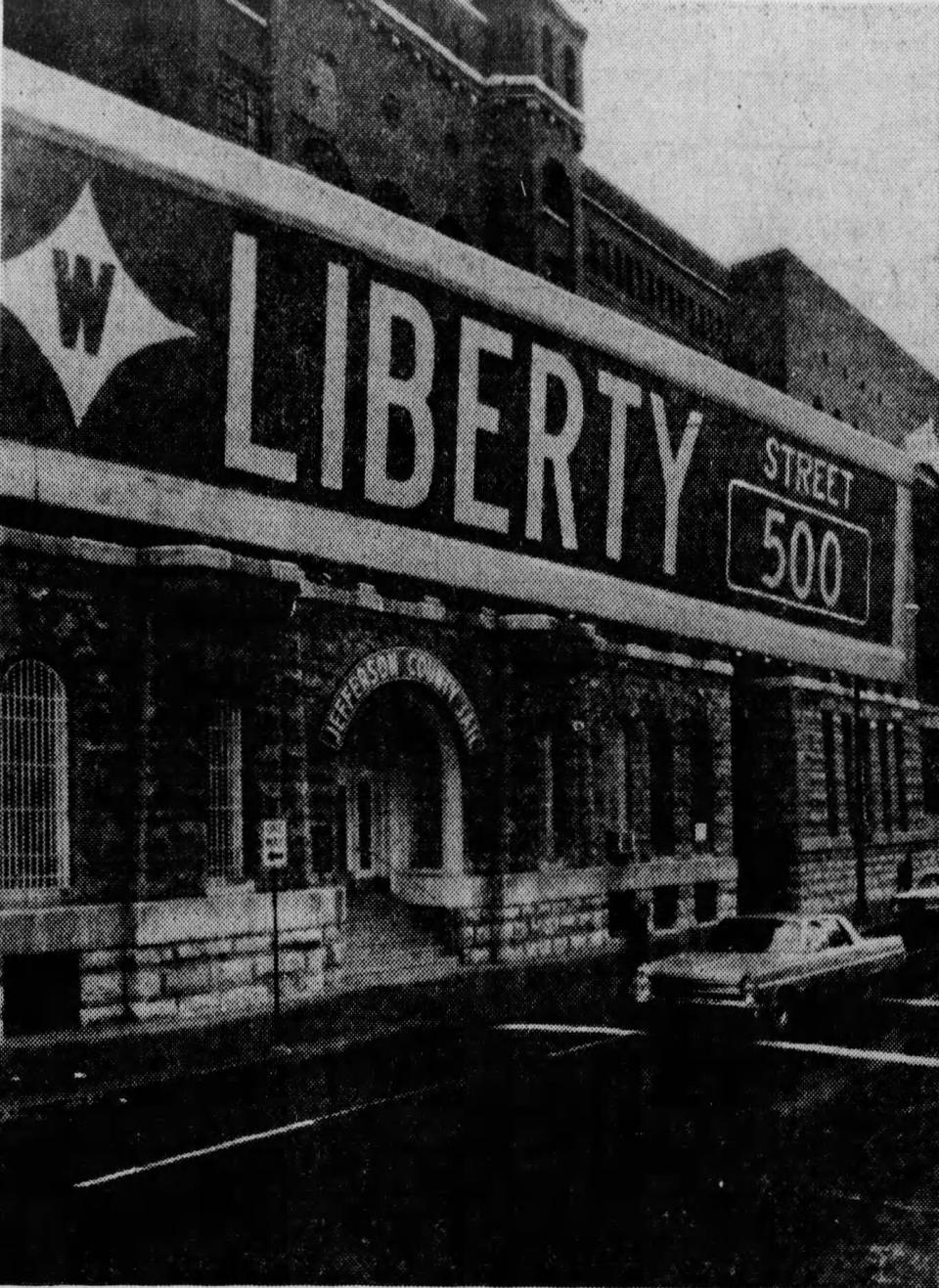
It may be hard to picture today, but the quiet and serene Jefferson County Public Law Library and government offices were once a dark jail where executions weren't uncommon.
The property opened as the Jefferson County Jail in 1901 and held prisoners accused of murders and other crimes. Public hangings took place on site until 1908, according to Courier Journal archives.
The jail remained open for 74 years before closing in 1977 after another nearby jail opened. But a year before it was shuttered, the site was put on the National Register of Historic Places. In 1979, The Courier Journal reported the property would be converted into county offices as part of a $2.5 million renovation and the property was "refurbished" in 1983, according to Amy Hilliard, the director of the Jefferson County Public Law Library.
The library was moved into the building at that time from its place in the Old Louisville Trust Building at Fifth and Market streets, Hilliard said, noting other offices currently in the building include the Office of the Commonwealth's Attorney, the Jefferson County Crime Commission and the Archives Division of the Office of the Circuit Court Clerk.
Germantown Mill Lofts, 946 Goss Ave.
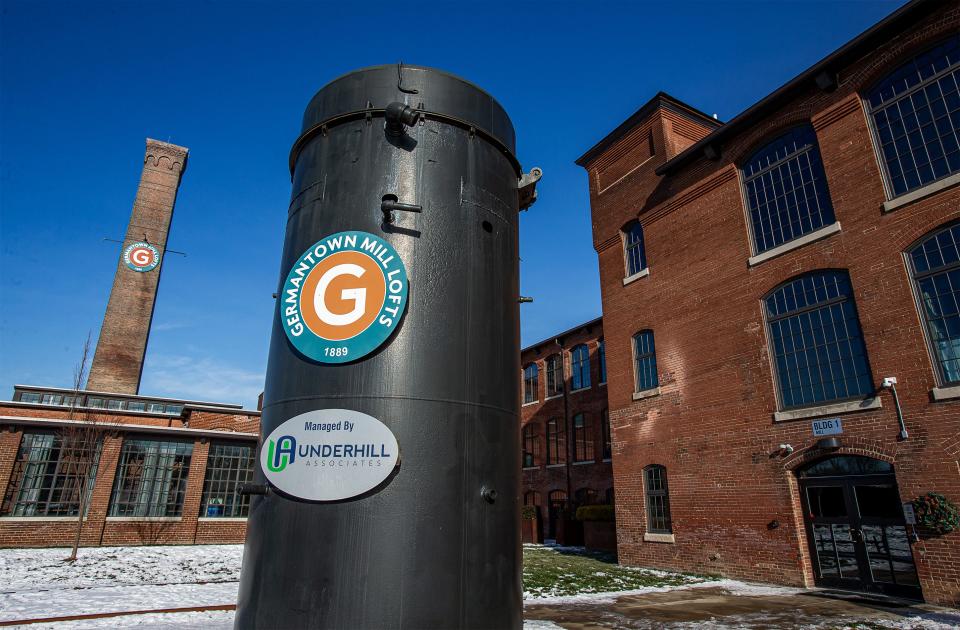
The Germantown Mill Lofts apartment complex definitely has an interesting past. Before it housed Louisville renters, the building used to be a cotton mill, Wiser said.
Wiser said the factory opened in the late 1800s and closed in the late 1960s, It used to produce draperies, upholstery fabrics and bedspreads.
It's certainly changed since then. Now, the large building in Germantown has studio apartments along with one-bedroom and two-bedroom units available for rent. The complex also has a pool, a gym and even a dog park.
Maven @ 806, 806 E. Chestnut St.
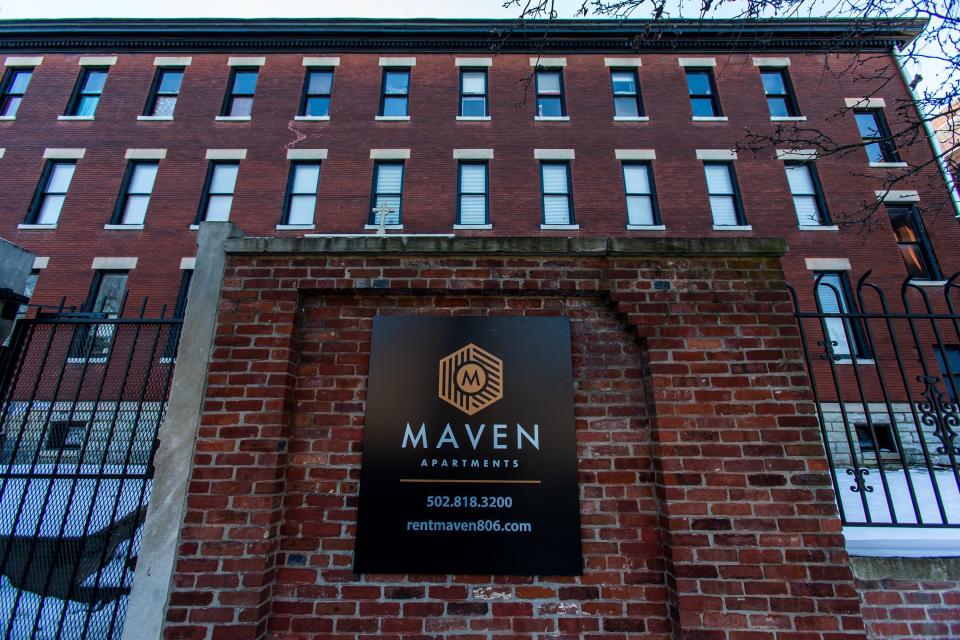
Three Ursuline nuns arrived in Louisville from Bavaria in 1858, according to Courier Journal archives, with plans to teach the German-speaking children of the St. Martin Roman Catholic Church.
A year later, in 1859, they founded the Ursuline Catholic Sister's School at what is now the Maven @ 806 apartment complex. The school was also a convent and a chapel that moved to Lexington Road in 1917, Wiser said.
The building on E. Chestnut Street has been repurposed before, Wiser said. It has previously served as other apartments complex and restaurants.
The building kept its original exterior, but you might forget it used to be a church when you step inside, with modernized one- and two-bedroom apartments.
Spalding University gymnasium, 824 S. Fourth St.
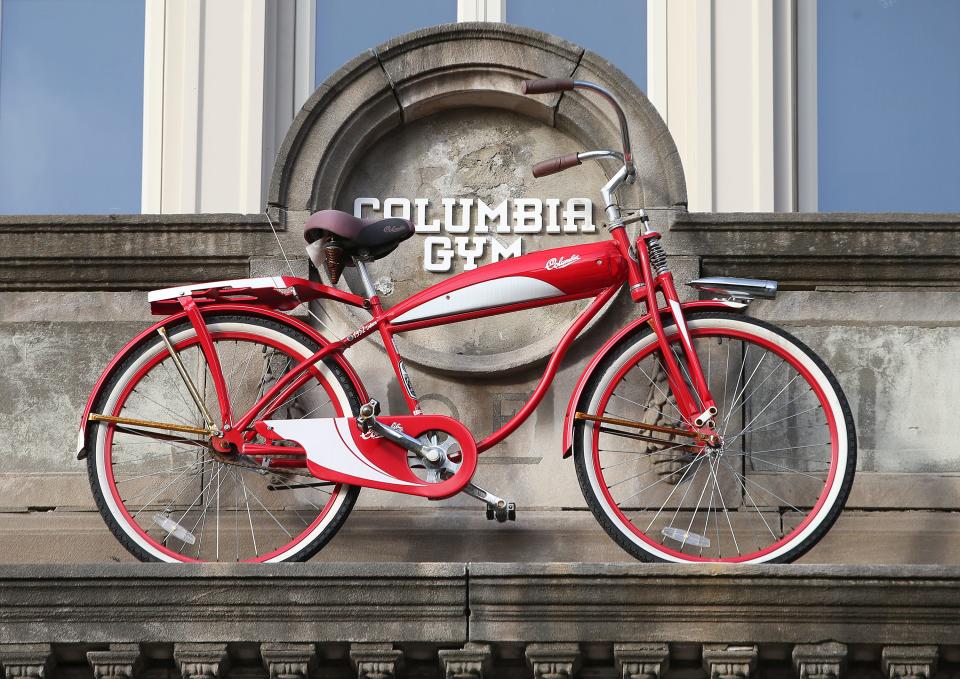
Can you imagine training where Louisville icon Muhamad Ali learned to box? Spalding University athletes have that opportunity.
When he was 12 years old, Ali's bicycle was stolen and he wanted to get even with the person who took it. Ali, who went by the name Cassius Clay at the time, told local police officer Joe Martin that he would "whup whoever took his bike," according to the gym's website. The officer said he needed to learn how to fight, and the rest is history – it seemed to have worked out pretty well for Ali.
The building was designated a historical landmark by the city of Louisville in 2020. During the commemoration, Danielle Lavender, Spalding's strength and conditioning coach, said she was "thankful for all the efforts that have been made to ensure that the life and work of the world’s greatest are never forgotten."
"Muhammad Ali may not be present with us today, but his legacy lives on," Lavender said.
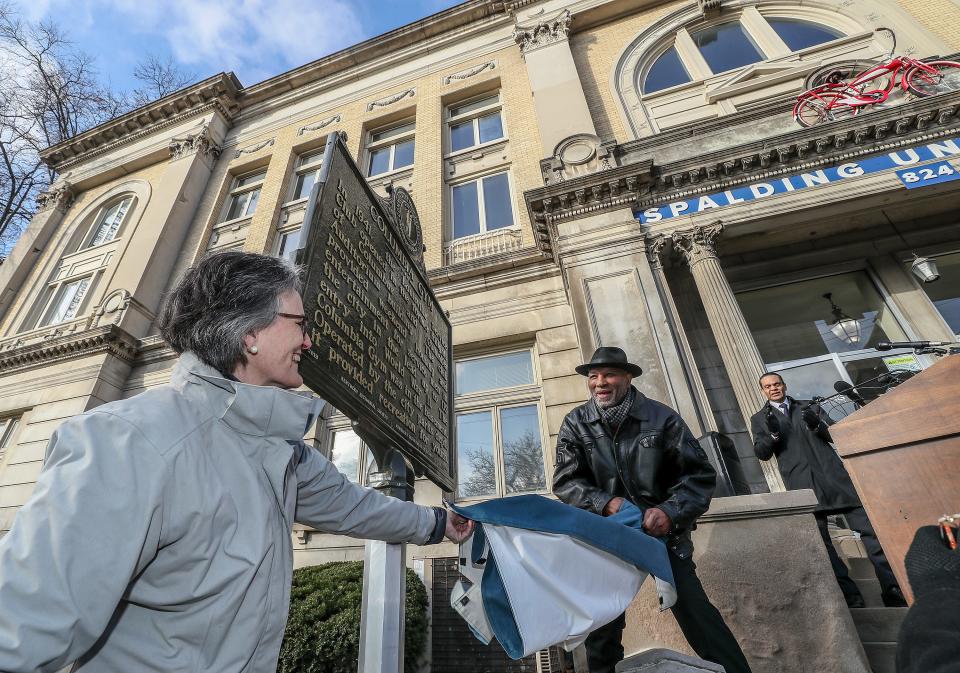
The old Columbia Gym is now the practice location for the school's basketball and volleyball teams, along with its athletic department offices.
This article originally appeared on Louisville Courier Journal: Louisville's repurposed buildings tell interesting history of city

